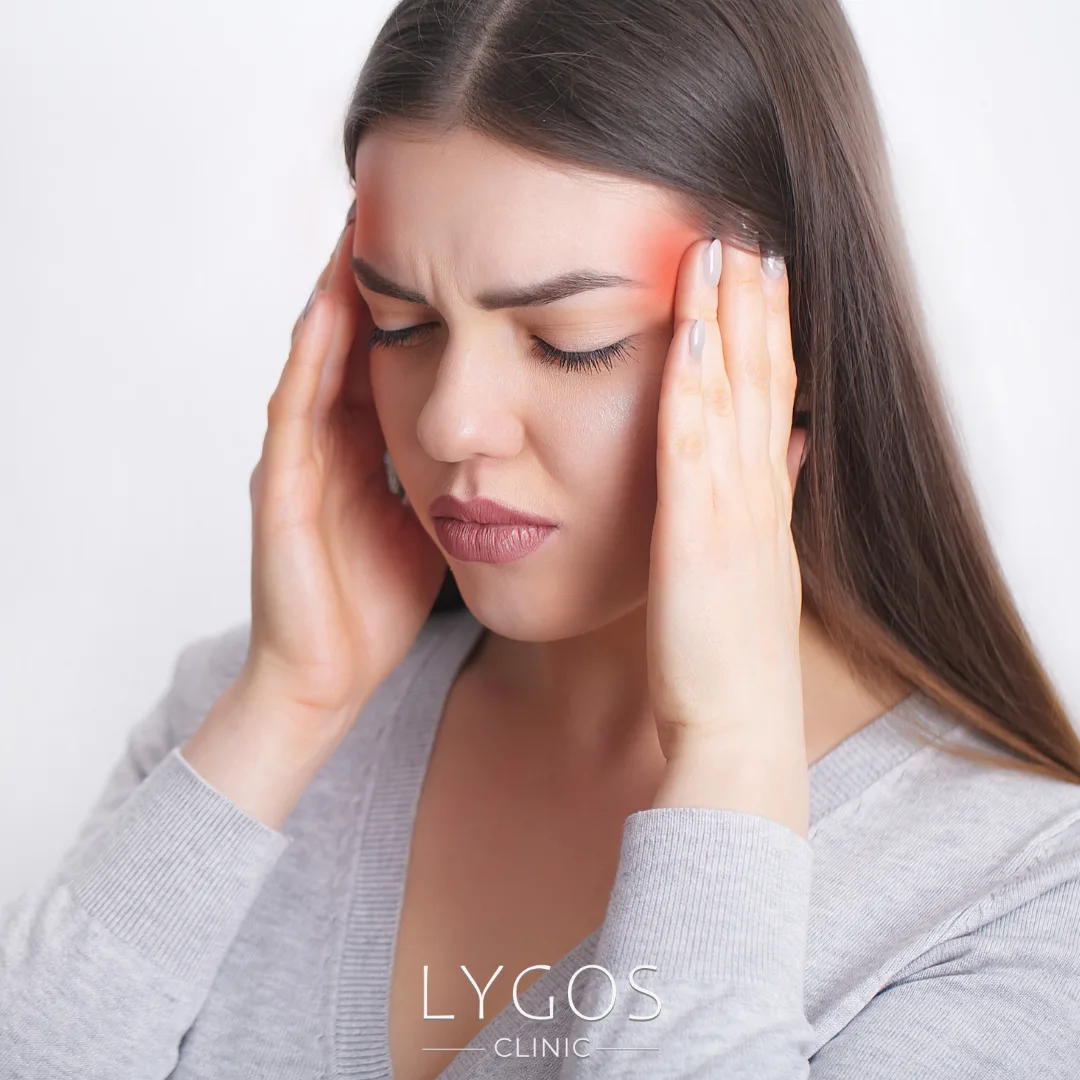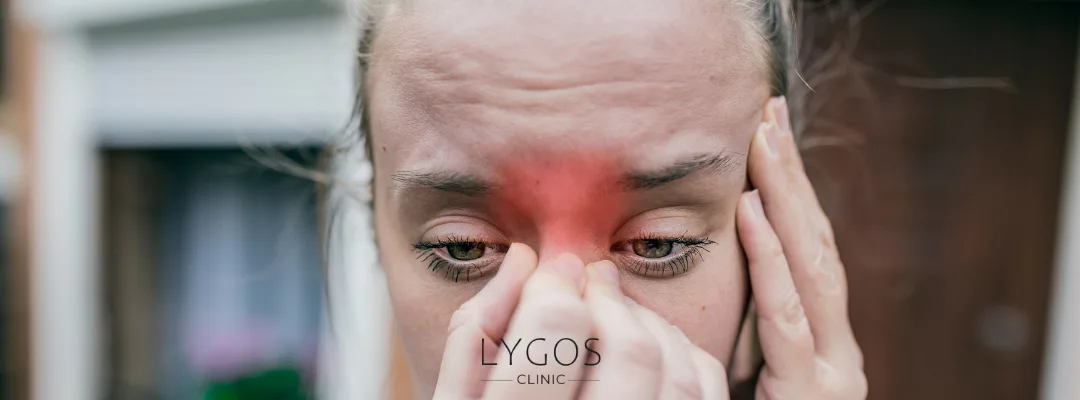What Helps with Headaches? | How to Prevent Headaches?

Chose Your Topic
What Helps with Headaches?
Headaches are a common condition that negatively affects daily life. Factors such as stress caused by modern life, an irregular diet, and prolonged screen exposure can trigger headaches. While headaches can sometimes be mild and short-lived, in some cases, they can last long and reduce the quality of life.
So, what helps with headaches? The answer to this question varies depending on the cause and type of headache. It is possible to reduce headaches with natural remedies, healthy habits, and the right lifestyle choices. Now, let’s examine the causes of headaches and the most effective solutions in detail.

What is a Headache?
A headache is a feeling of discomfort or pain in the head region. It can be mild and short-term or severe and chronic. Headaches that negatively impact daily life can arise from various causes and appear in different types. The question What helps with headaches is frequently searched by people who want to get rid of these pains.
What Causes Headaches?
There can be many causes of headaches. Stress, fatigue, dehydration, lack of sleep, poor posture, and prolonged screen exposure are common daily factors that trigger headaches. Additionally, migraines, sinus infections, blood pressure changes, eye strain, and certain illnesses can also cause headaches. Hormonal changes, dietary habits, and environmental factors are also among the reasons for headaches. The answer to What Helps with Headaches depends on the cause of the pain.

What Are the Types of Headaches?
Headaches can be classified into different types:
- Tension Headache: The most common type of headache. It occurs due to stress, muscle tension, and fatigue.
- Migraine: Characterized by severe and throbbing pain. It is often accompanied by nausea, and sensitivity to light and sound.
- Sinus Headache: Occurs as a result of sinus inflammation. It usually appears with a feeling of pressure in the face area.
- Cluster Headache: Appears in intense and short-term pain episodes. It typically occurs around the eyes or on one side of the head.
- Hypertension Headache: Arises due to changes in blood pressure.
How to Relieve a Headache?
Some simple methods can be applied to alleviate headaches. Drinking plenty of water, walking in fresh air, resting the eyes, and practicing stress management techniques can help relieve headaches. Additionally, establishing a proper sleep routine and maintaining a healthy diet can be effective in preventing headaches. The answer to what helps with headaches lies in these natural methods. In cases of severe headaches, consulting a doctor is recommended.

What Helps with Headaches?
For those wondering what helps with headaches, here are the six most effective methods:
- Drinking Plenty of Water: Dehydration is one of the most common causes of headaches. Drinking enough water daily can help alleviate headaches. Insufficient water intake can cause brain tissues to dehydrate, triggering headaches. It is especially important to stay hydrated in hot weather and after intense physical activity.
- Sleep Routine: Getting regular and sufficient sleep can prevent headaches. Lack of sleep hinders proper body function and can lead to headaches. Long-term irregular sleep patterns can cause headaches to become chronic. The quality of sleep is just as important as its duration.
- Herbal Teas: Herbal teas such as chamomile, lemon balm, and ginger tea can help relieve headaches. These teas provide relaxation by relaxing muscles and calming the nerves. Chamomile tea, in particular, is a natural muscle relaxant, making it very effective for stress-related headaches.
- Exercise and Yoga: Light-paced walks, breathing exercises, and yoga can be beneficial in preventing headaches. Physical activity increases blood circulation in the body, helping to alleviate headaches. Yoga and meditation are effective techniques for preventing stress-related headaches.
- Cold or Hot Compress: Applying a hot or cold compress to the forehead or neck area can help relieve pain. A cold compress is particularly effective for migraine headaches, while a hot compress can help alleviate muscle tension-related headaches.
- Lavender and Peppermint Oil: Lavender and peppermint oils have headache-relieving effects. They can be applied to the forehead and temples. Peppermint oil relaxes muscles with its cooling effect, while lavender oil has a calming effect that helps with stress-related headaches.
How to Prevent Headaches?
Adopting a healthy lifestyle is essential to prevent headaches. Stress management, regular exercise, a healthy diet, and sufficient sleep can help prevent headaches. Additionally, avoiding prolonged screen exposure, drinking enough water, and correcting poor posture habits can prevent headaches. The best answer to what helps with headaches is to develop healthy lifestyle habits. If headaches are frequent and severe, it is important to consult a doctor to determine if there is an underlying health issue.
In conclusion, by incorporating methods that answer the question what helps with headaches into your life, you can lead a healthier and pain-free life. Maintaining a healthy diet, exercising regularly, and managing stress play a crucial role in preventing headaches. If your headaches persist and negatively affect your quality of life, it is essential to consult a specialist.
What Helps with Headaches? Frequently Asked Questions (FAQ)
Headaches can be triggered by various factors, including stress, dehydration, lack of sleep, prolonged screen exposure, poor posture, and dietary habits. Medical conditions such as migraines, sinus infections, and high blood pressure can also contribute to headaches.
Drinking water, resting in a dark and quiet room, applying a cold or hot compress, and practicing deep breathing exercises can help alleviate headaches. Herbal teas like chamomile and peppermint oil application may also provide relief.
If your headaches are persistent, severe, or accompanied by symptoms such as vision problems, dizziness, nausea, or confusion, you should consult a doctor. Frequent headaches that interfere with daily life may require medical evaluation.
Caffeine can provide temporary relief for some headaches, especially migraines, as it helps constrict blood vessels. However, excessive caffeine consumption or withdrawal from caffeine can trigger headaches in some individuals.
Yes, certain foods such as processed meats, alcohol, artificial sweeteners, and foods high in MSG can trigger headaches. Maintaining a balanced diet rich in fresh fruits, vegetables, and whole grains can help reduce headache frequency.


